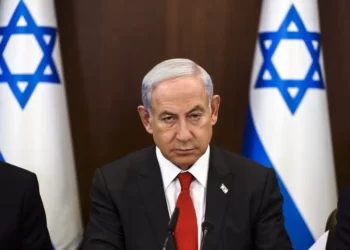The European Union and Egypt have signed a framework agreement to strengthen economic and political ties as fears grow over further displacement of people from Gaza in the region.
Unveiling the deal, Josep Borrell, the EU’s Chief diplomat, paid tribute to Egypt’s role in getting aid to Gaza.
He also said that the new deal would give Egypt access to some EU programmes including the Horizon research fund.
The deal, which is expected to lead to a fully blown partnership agreement in the next month, will draw on a €9bn fund already agreed to strengthen economic ties.
The EU’s neighbourhood Commissioner, Olivér Várhelyi, described the deal as “the beginning of the golden age,” adding that it was based on “six pillars” of investment in the economy, water and food security, green energy and assistance with migration.
On his part, Egypt’s Foreign Minister, Sameh Shoukry, disclosed that the deal “recognised that what happens in Egypt and in our region has a direct effect on conditions in Europe and what happens in Europe equally has an effect on Egypt and its adjoining regions whether it is the Middle East or Africa.”
Egypt already offers refuge to millions of people who have fled South Sudan, Eritrea and Yemen and has so far resisted the establishment of refugee camps on the Gaza border.
When asked about the possibility of future funds, he remarked that he did not take the “Dickens perspective of I want more [money]” but his aim was for his country’s needs to be met through “a healthy and productive relationship that responds to the interests of both sides.”
Shoukry Decries Loss Of Life In Gaza
Moreover, Shoukry said that the “devastating scale of loss of life” in Gaza “is unacceptable, is unprecedented and it is just a blemish on the international community’s moral perspective.”
Speaking to reporters in Brussels, he called for an immediate ceasefire to deal with the “inhumane conditions that the people of Gaza are suffering under, absolutely horrendous, tragic, painful conditions.”
He warned that unless the world dealt with the displacement of Palestinians fleeing the bombing from Israel, the security of the wider region and Egypt would be at risk.
Shoukry voiced that the rhetoric was not enough.
“The deprivation of their basic needs water, food, medicine, healthcare, sanitation, not being provided will make the conditions and Gaza unliveable in itself, and will induce displacements.
“If we don’t take measures to offset the potential of displacement, then displacement will occur and its consequences will be a further complication to the situation, will be a direct challenge to Egypt’s security.”
Sameh Shoukry
Meanwhile, the UN’s World Food Programme warned that the population of the Gaza Strip faces an increasing risk of famine as the Israel-Hamas war drags on.
The situation in Gaza is of course slipping every day into a much more catastrophic situation … [with] a looming threat of famine,” Abeer Etefa, the WFP’s senior Middle East spokeswoman, told a press briefing by video link from the Egyptian capital, Cairo.
A study conducted between November 24 and December 7 found that all 2.2 million people in the Palestinian territory were in a crisis level of food insecurity.
Etefa stated that the picture has deteriorated since.
“More than half a million people in Gaza are facing catastrophic food insecurity levels and the risk of famine increases each day,” she said.
Etefa noted there is something exceptional about the current situation, even with the long years of conflict in places like Syria, Yemen and Sudan.
We haven’t seen that high a level of the number of people in these conditions in such a short span of time … [and Gaza has] the largest concentration of people in what looks like famine-like conditions anywhere in the world”.
Abeer Etefa
READ ALSO: High Court Adjourns SALL Election Petition Hearing, Urged to Prioritize Early Trial





















